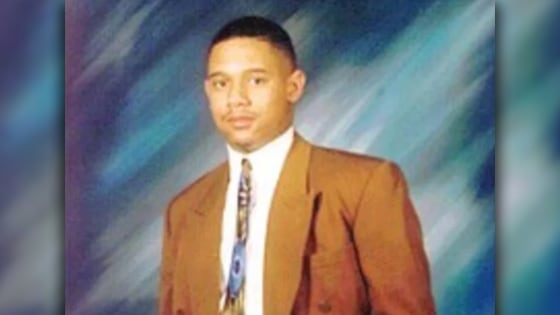Play the episode “Missing in Music City” of the Dateline: Missing in America podcast below and click here to follow.
Read the transcript here:
College is such a special time for any young adult, filled with new experiences and new relationships.
Sometimes where you go is also where you find out who you are and what you want out of the world.
For Marcus Rutledge, that place of discovery was Tennessee State University in Nashville.
David Rutledge is his dad.
David Rutledge: “It’s a special place, a place where not only academic learning takes place, but also, social learning.”
Home of the Tigers, TSU is a historically Black university, and counts Oprah Winfrey among its most famous alumni.
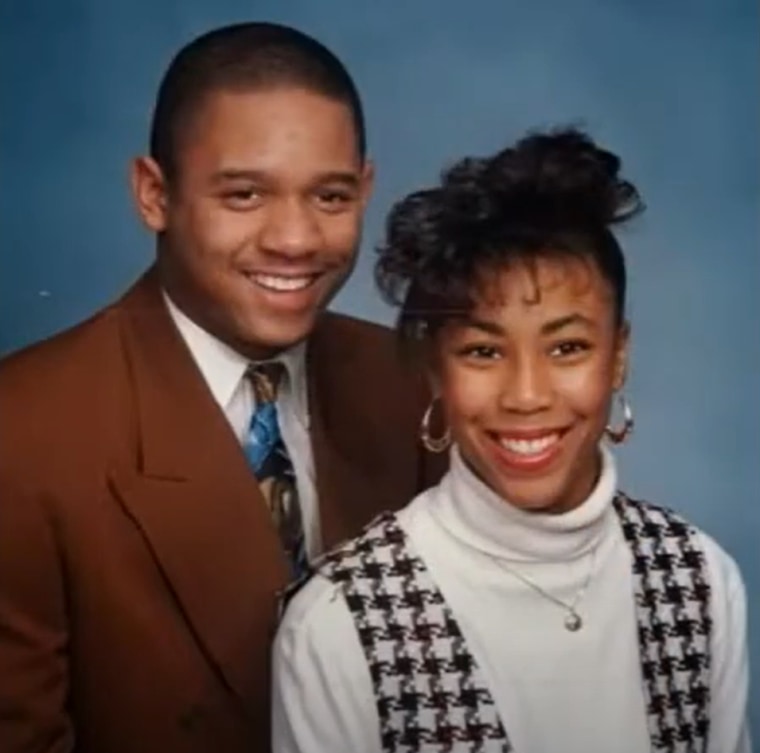
Marcus proudly wore his royal blue and white -- and for good reason.
For the Rutledges, TSU is a family affair.
Both his parents went there, and when Marcus started as a freshman, his sister Felicia was a sophomore.
Back then she had some big-sister advice.
Felicia Rutledge: “I remember when he first registered and my mom was like ‘Oh, you should take an eight o’clock class.’ And I told him, ‘You do not wanna take an 8 a.m. class.’”
In the spring of 1998, Marcus was set to graduate, and the family was excited to see their youngest son wear that cap and gown. Except that never happened, because on June 8, 1998, Marcus Rutledge disappeared. And for 26 years, his family has been living with that mystery.
Josh Mankiewicz: “It’s possible that at the time he disappeared, he was involved with people that you didn’t know anything about. I’m not gonna say keeping a secret from you, but that he just wasn’t talking about.”
David Rutledge: “I wonder whether or not Marcus was actually into something that was bigger than he was, and he was actually trying to get away. Just to leave and leave no trace.”
I’m Josh Mankiewicz, and this is Dateline: Missing in America. This episode is “Missing in Music City.”
Please listen closely, because you or someone you know might have information that could help solve this case and give Marcus’s family the answers they are desperately looking for.
Josh Mankiewicz: You think there’s a chance Marcus is still alive and still out there somewhere.
Felicia Rutledge: Absolutely.
Life for Marcus, of course, didn’t start on the buzzing campus of Tennessee State. His parents, David and Jerry, raised him and his sister in Ypsilanti, Michigan, just a few miles east of Ann Arbor.
Josh Mankiewicz: “Tell me about Marcus growing up.”
David Rutledge: “Marcus was a vivacious baby.”
That’s Marcus and Felicia’s father, David.
David Rutledge: “His mom — who was an elementary school teacher — she would constantly be in conversation with his teacher, uh, who said, you know, they may be having a lesson and he’d get up and kind of move around the classroom and she’d have to get him back in his seat. He was an active little guy. Other than that, his grades were always good.”
Felicia also remembers her brother as a ball of energy. Only two and a half years apart, they were as close as can be.
Josh Mankiewicz: “Was he the annoying younger brother or were you guys kind of partners in crime?”
Felicia Rutledge: “I think we might’ve been partners in crime. My parents used to go out of town, um, and they would leave us at the house. You know, we were teenagers. And boy, we’d be waiting for that time. We’d have our friends over to the house, of course.”
Josh Mankiewicz: “Like the second your parents left.”
Felicia Rutledge: (Laugh) “Like the second my parents left.”
For the most part, Marcus made Felicia’s job easy. She says he was always a polite kid with a good head on his shoulders.
Felicia Rutledge: “When we would go to church, he made sure he held the door open for the, you know, elderly ladies of the church. He had a really good, respectable, genuine, kind heart about himself.”
By 1994, Marcus was all grown up and off to join his big sister at Tennessee State. They spent a couple of years at the school together before Felicia moved back to Michigan to finish her studies there.
Felicia Rutledge: “I remember constantly calling him to make sure he went to class. As far as I knew, he was attending his classes, had a lot of friends at Tennessee State. Met a young lady there who we’ve had the privilege of meeting.”
That young lady’s name is Valencia Bryant.
Valencia Bryant: “We met and, um, just kept running into each other on campus. Eventually, he spoke.”
Valencia says she and Marcus connected instantly during their freshman year.
Valencia Bryant: “He was a jokester. Always smiling, always laughing, just goofy, silly. Everybody liked being around Marcus.”
The campus romance quickly turned serious. Just months into their relationship, Valencia became pregnant. Mother and father were both only 18.
Valencia Bryant: “And it was scary, but I was also excited and very happy, and he seemed to be, too. Like, when the initial shock wore off.”
Marcus was also worried about what his parents might think. He waited as long as he could to tell them, but when he came home to Michigan for the summer, he mustered the courage, with a little help.
Felicia Bryant: “He did take a shot of alcohol before he had the conversation with them.”
Josh Mankiewicz: “That was a little bit of Dutch courage before informing his parents that they’re now grandparents.”
Felicia Rutledge: “Yes. And they immediately asked him to, ‘Hey, get the young lady on the phone. Get the parents on the phone.’”
That’s how the Rutledges learned Valencia had just given birth to their grandson, Darius.
Felicia Rutledge: “I believe the next week we were down there.”
Josh Mankiewicz: “Seeing the baby.”
Felicia Rutledge: “Seeing the baby.”

Parenting is tough at any age but for two teenagers in college, the challenges add up quickly.
Valencia says she left school and moved back home to Knoxville so her parents could help out.
Marcus stayed at TSU and would travel back and forth.
Valencia Bryant: “He did the best he could at our age and as a college student and us being in two different locations. Always checked on Darius, always wanted to make sure he was OK.”
Felicia says her brother was determined to be the best dad he could be.
Felicia Rutledge: “Every moment he got, he would spend that moment, um, with Darius. I mean, birthdays, holidays.”
By June 1998, Darius’s fourth birthday was just a month away. At that point, Marcus and Valencia were no longer a couple, but they were co-parenting Darius.
Valencia Bryant: “We actually went our separate ways very early on, but stayed very, very close. Always talked if I needed something. And we were planning a huge birthday carnival -- birthday party for him.”
Then, on June 8, 1998, the Rutledges received a phone call. At that point, Marcus had a different girlfriend, named Tawania.
She told them she and Marcus planned to meet earlier that day but he never showed. And now she couldn’t reach him.
Felicia vividly remembers that call.
Felicia Rutledge: “I was in my room at the time and I remembered my mom saying, ‘Well, I tell you what, you know, we’ll try to reach him ourselves.’ And so I go into the room and I asked my parents, “What’s going on?”
Felicia instantly started trying to reach Marcus herself.
Felicia Rutledge: “I called him up, calling his cell phone. No answer. Up until, like, three, four, five o’clock in the morning, no answer.”
Josh Mankiewicz: “Was it customary that when you would call him, he would pick up or he would get right back to you?”
Felicia Rutledge: “Oh, yeah. He almost always picked up for me.”
David Rutledge: “I’ve never not been able to get Marcus when I tried to reach him.”
The family reached out to Valencia, too.
Valencia Bryant: “I got a phone call from his dad asking if I had spoke to him recently. And I was like, ‘No, not, you know, in a few days. Is everything OK?’”
Everything was not OK. As the Rutledges kept calling their son’s other friends, Marcus’s girlfriend, Tawania, called them back.
David Rutledge: “She called us to say, ‘Have you heard anything?’ And we still haven’t. And she said, ‘I want to go over to his apartment and check.’ And that started a series of events where she gets another person involved. The two of them go over and they essentially break in a window.”
The Rutledges say Marcus had recently moved out of an apartment he’d shared with his best friend and into his own place in Nashville.
Tawania called that friend, Athan Gibbs, to help her get into his new apartment.
Together, they broke Marcus’s window and climbed through, looking to find any sign of him.
Tawania called the Rutledges back with news both good and bad.
David Rutledge: “The place doesn’t look ransacked but it does look, uh, like nobody’s been there for a while. And the dog, Marcus had a dog –.”
Felicia Rutledge: “A rottweiler.”
David Rutledge: “The dog was in the bathroom with the door closed, and -- and had been in there long enough to ingest part of the rug, uh, floor rug that was in there.”
Josh Mankiewicz: “So the dog was left essentially without food or water. And that didn’t sound like Marcus.”
David Rutledge: “That wouldn’t be him.”
All of it led Tawania to call the police that night.
Detective. Matthew Filter: “His girlfriend reported him missing at 7:35 p.m. She is the last known person to have seen him or even spoken to him.”
That’s Detective Matthew Filter. He’s a cold case detective for the Metro Nashville Police Department. His colleagues interviewed Tawania.
Detective Matthew Filter: “His girlfriend last saw him that morning when he was leaving her place. She, uh, did speak to him later on that afternoon, about 1:30 p.m., and then she tried to call him a few times later that afternoon and left him voicemail messages. He never responded to the voicemail and never answered the phone.”
Investigators at the time looked at Marcus’s apartment.
Josh Mankiewicz: “Any sign that a -- a struggle happened there, or that a murder happened there, or anything happened there?”
Detective Matthew Filter: “There was no indication that anything had happened.”
So, no signs of foul play.
Investigators checked with family, friends, hospitals, even jails.
No trace of Marcus. Valencia says it made no sense to her.
Valencia Bryant: “It got really real within a day or two. ‘Cause I’m like, ‘Something’s wrong.’ You know, ‘He does not do this.’”
None of this was like Marcus. He would never leave his dog unattended. He would never ignore the phone calls of family and friends. And he would never leave his son behind.
Valencia Bryant: ‘If it has anything to do with our child, he is on it.”
They looked for Marcus, and for answers. Some of the things police were about to find raised more questions.
Detective Matthew Filter: “There was a handgun recovered from the car and that was possibly Marcus’s.”
Why would Marcus be carrying a gun?
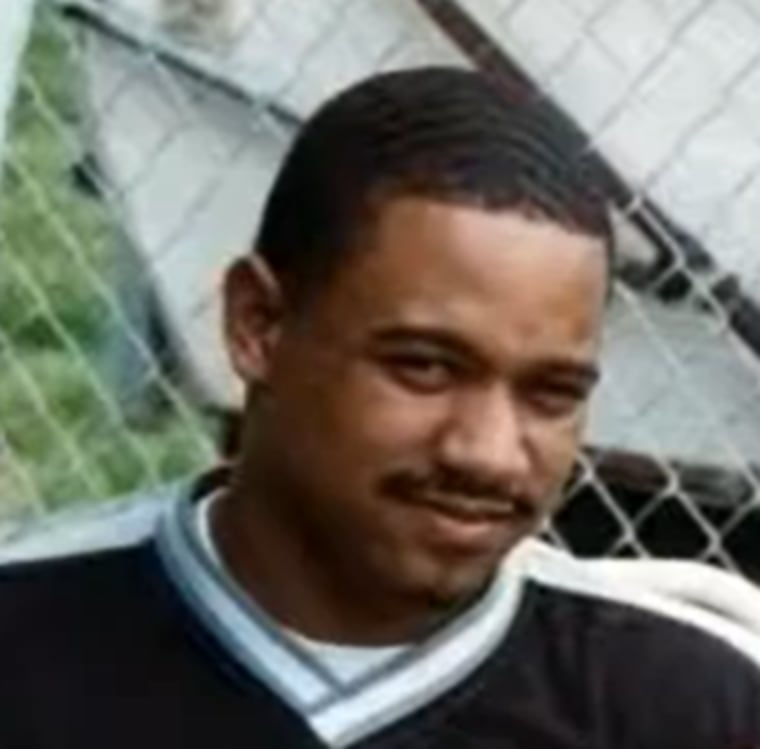
When a loved one goes missing, it is natural to bring your mind back to the moment you last saw them. Touched them. Said goodbye. Maybe you missed something. A sign. Anything that could explain such a sudden disappearance.
For Felicia and David, that moment was Memorial Day weekend, 1998. Marcus told his family he had a break from classes and flew into Michigan from Tennessee for the holiday.
Felicia Rutledge: “We picked him up, got him from the airport, we had a family barbecue, friends and family over.”
Josh Mankiewicz: “And he seemed happy, normal?”
Felicia Rutledge: “He seemed happy, he seemed normal.”
Josh Mankiewicz: “Nothing bothering him?”
David Rutledge: “There was nothing, nothing unusual.”
And maybe all was normal -- then.
Just a few weeks later, Marcus was gone. And the Rutledges needed to find him.
Felicia Rutledge: “So I flew down to Nashville. My parents came down.”
When they arrived, they noticed something else: The car Marcus drove was also missing.
Josh Mankiewicz: “What kind of car was it?”
David Rutledge: “It was a Neon.”
Felicia Rutledge: “Yep.”
Marcus’s red four-door 1995 Plymouth Neon with Michigan plates had vanished with him.
Had he left town? Gone for a drive? Or maybe gotten into an accident?
As word of Marcus’s disappearance spread quickly in the TSU community and around Nashville, local media picked up the story.
Detective Matthew Filter: “They eventually did release his information on the news. And that also included information on his car.”
Days passed, with still no sign of Marcus or that Neon until 23 days after his disappearance, when detectives caught a break.
Detective Matthew Filter: “The car was found at the Riverwood Apartments, uh, off of Cabot Drive, which is on the west side of Nashville.”
Josh Mankiewicz: “His car gets found in a place that doesn’t seem to have any connection to him.”
Felicia Rutledge: “Miles away from his apartment.”
A little more than 20 miles, to be exact. His family does not know why his car was found there, and they also do not believe he knew anyone who lived in that apartment complex.
They still hoped it would lead them to Marcus.
Valencia Bryant: “If they found his car, there’s going to -- there’s got to be something that will kind of point us in the right direction.”
Detectives examined the car.
Detective Matthew Filter: “There was no particular evidence, i.e. there was no blood or anything like that that — that really indicated anything at all had happened in that car.”
Josh Mankiewicz: “But you did find a handgun.”
Detective Matthew Filter: “Yes. There was a handgun recovered from the car, and that was possibly Marcus’s.”
Why would Marcus have a gun?
Valencia Bryant: “I never knew Marcus to have a gun, but it didn’t surprise me. He had some run-ins with some people, um, and they had been in some altercations.”
What sort of people? And could they have done something to Marcus?
Josh Mankiewicz: “It sounds to me as if it’s possible that, at the time he disappeared, he was involved with people that you didn’t know anything about. People that he was, I’m not gonna say keeping a secret from you, but that he just wasn’t talking about.”
David Rutledge: “The answer to that is yes, and I would say that it would fall into the category of keeping a secret from us.”
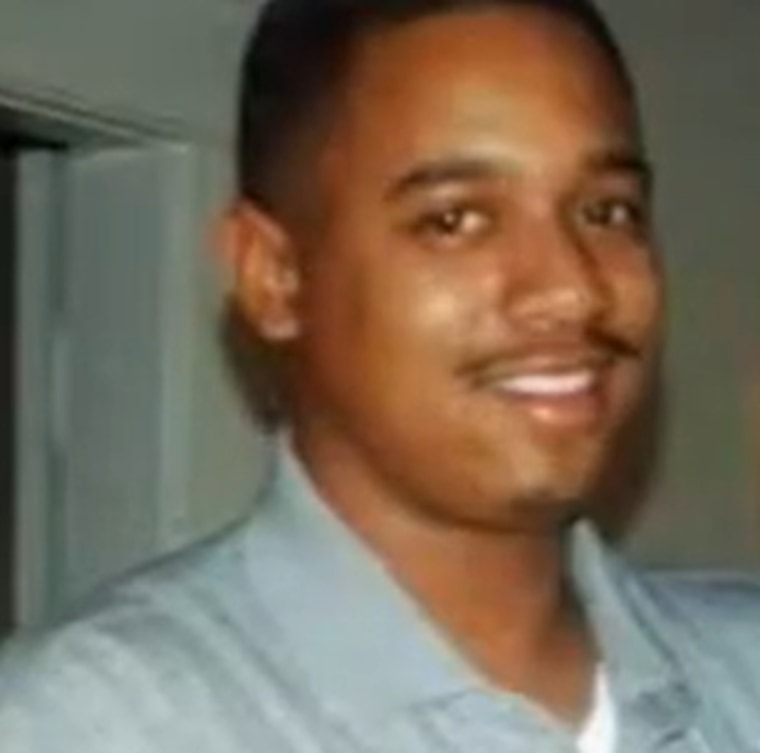
So what was Marcus involved in?
Investigators were trying to figure that out, but beyond the car and the gun, they were not turning up many new leads.
Then in February 1999, something happened which startled everyone in this case.
That’s when Marcus’s best friend, Athan Gibbs, was found murdered -- gunned down in his home.
Athan was the friend who’d helped Tawania get into Marcus’s apartment on the night he went missing. Now Athan was dead, just eight months after Marcus disappeared.
Felicia Rutledge: “He opens up his door and he was shot. I mean that’s brutal, personal.”
David Rutledge: “Yeah, that’s anger.”
Josh Mankiewicz: “Connected? Coincidence? You guys tell me.”
David Rutledge: “Let me take you back. At once upon a time, Athan and Marcus were roommates. And Marcus called us and said to us that he wanted to get his own place, wanted to move away from Athan. We found that surprising. Uh, when we asked why, he simply said that Athan wasn’t keeping up his end, his share, was always late with his portion of the rent, wouldn’t help keep the place clean.”
Josh Mankiewicz: “You think maybe there was another reason?”
David Rutledge: “Well, as you look back -- I mean, there could have been.”
Were Marcus and Athan both involved in some sort of trouble? Looking back, Marcus’s dad wonders what was going on between them.
David Rutledge: “When we arrived in Nashville and met with Tawania and Athan, tried to learn all they knew. Athan never, ever, seemed comfortable around us. And he was always perspiring, sweat dripping from his forehead. I mean, it was hot in Nashville, but wasn’t that hot, kind of thing.”
Josh Mankiewicz: “You think Athan knew more than he was telling?”
David Rutledge: “I wish I had been more forceful in asking Athan what he knew. Maybe taking him to the side and saying, ‘Hey, look, Athan. It’s me and you, man. I ain’t doing nothing, but tell me: Were you guys into something?’”
It was too late for that now. If Athan Gibbs had carried any dark secrets, they likely died with him.
Months turned into years. Years turned to decades, with still no new leads in Marcus’s disappearance. Nashville police labeled it a cold case.
Then, in 2020, Detective Filter took over as lead investigator. And what he uncovered about Marcus was about to deepen this mystery and seriously surprise the Rutledge family.
David Rutledge: “In recent conversation with this detective, I mean, I learned things I didn’t know before.”
Marcus’s secrets were about to come tumbling out.
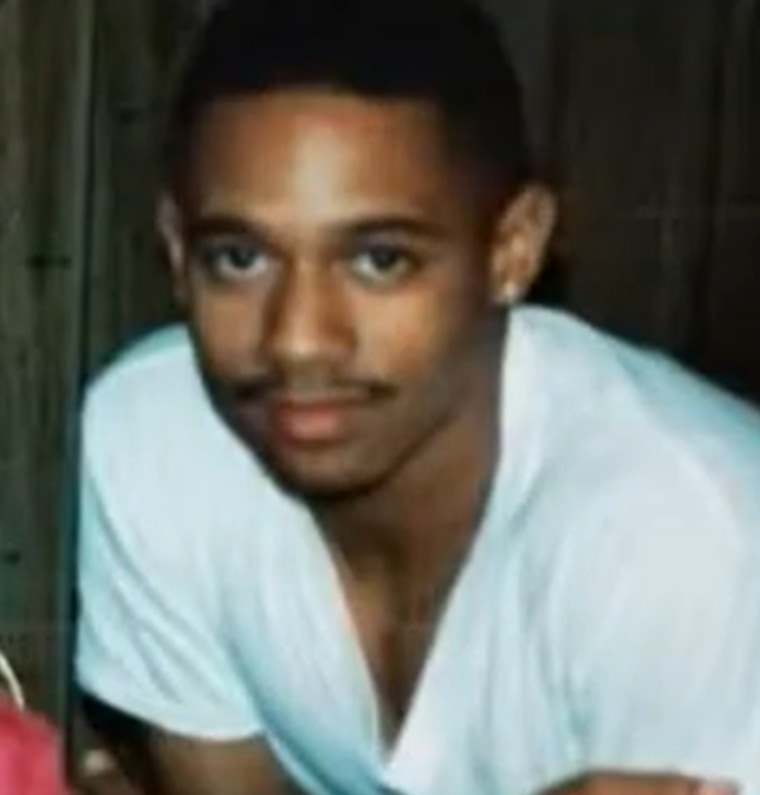
Marcus Rutledge had been missing for 22 years when Detective Filter first opened the case file.
And through his investigation, he confirmed at least one of the family’s suspicions: Marcus was keeping certain things from them.
Detective Matthew Filter: “I think he was telling his family he was a senior at TSU -- Tennessee State University. And the detective that was on the case early on discovered that he was not -- he was no longer enrolled.”
That’s right. Marcus had dropped out of TSU, and was lying about it to his family.
Josh Mankiewicz: “What was he actually doing?”
Detective Matthew Filter: “Well, not completely sure exactly what he was doing with occupying his whole time. Uh, we do know that he was involved in the sale of marijuana.”
Marijuana. In 1998, smoking or selling it was illegal in all 50 states.
Josh Mankiewicz: “So he was selling a — illegal drug.”
Detective Matthew Filter: “Right. I don’t believe that he was, like, some big mover, you know, like he was just --.“
Josh Mankiewicz: “Right.”
Detective Matthew Filter: “You know, he was just kind of like a street-level kind of a guy and selling probably to a lot of college kids and stuff.”
Valencia confirms that. She says it was all about providing for their son, Darius. And she remembers trying to talk Marcus out of it.
Valencia Bryant: “I just remember for him, it was, you know, this is helping me to be able to help and I’m going, ‘Well, of course, I need you to help, but not to the point that you are kind of neglecting school and -- and you’re -- you’re doing this. This isn’t what you need to be doing.’”
The weight of caring for Darius wasn’t the only thing on Marcus’s shoulders. There was another secret he was keeping from his family.
He had another child -- a daughter -- with his girlfriend, Tawania.
His daughter, Jayla, was two years old when he went missing. Marcus was actually with her on the morning he disappeared.
Detective Matthew Filter: “He was taking his daughter to school or daycare.”
Barely an adult himself, Marcus had two young children and needed to take care of them. That’s why Valencia believes he dropped out of school and started selling marijuana.
Every facet of their son’s secret life came as a surprise to the Rutledges.
Josh Mankiewicz: “Marcus sounds like a guy who was a good son. And I’m not gonna say he never gave you any trouble, but, like, it feels like he was on his way in life and you weren’t super worried about him.”
David Rutledge: “When this guy was in our presence, every single time we go down to visit him, everything was spiffy good, clean, good to go.”
Josh Mankiewicz: “He cared what you thought, David.”
Felicia Rutledge: “Yeah.”
Josh Mankiewicz: “ And Felicia.”
Felicia Rutledge: “Yes.”
David Rutledge: “He knew our values -- our values system -- and he knew our hopes and dreams for him as an individual.”
Josh Mankiewicz: “And he didn’t want to disappoint you.”
Felicia Rutledge: “Right.”
The Rutledges say they understand why Marcus did not tell them about dropping out of school. Maybe he planned to go back before they could find out. And given his reluctance to tell them about his first child, they’re also not surprised he kept the second child a secret, too.
OK, but selling weed? That’s a side of him Marcus probably knew would disappoint his family.
Josh Mankiewicz: “Tell me how you guys picked up on the fact that he was selling marijuana.”
Detective Matthew Filter: “The marijuana sales was information that was gathered by, uh, people that knew him that knew that he was -- he was selling. And, of course, one of those was -- was Athan Gibbs.”
Athan Gibbs. Marcus’s best friend and the man who was murdered just months after Marcus vanished.
Detective Filter says Athan was also selling weed. So, did whoever killed Athan go after Marcus first?
Detective Matthew Filter: “Right after Athan was killed, the detectives thought that there might be a connection there. But when comparing -- looking at the cases -- there’s nothing obvious that they can say that Marcus’s disappearance is connected with Athan’s murder.”
Josh Mankiewicz: “Somebody was charged with Athan’s murder, but, uh, not convicted.”
Detective Matthew Filter: “Yeah. The, uh -- the charges for some reason were dismissed, and I -- I don’t know why. I could never find an answer to that question. When I look at Athan’s case, uh, a lot of the evidence in it was circumstantial. So I’m not sure if the district attorney at the time just didn’t feel that they could win that case. And so, they dismissed the charges.”
Josh Mankiewicz: “So Athan Gibbs’ murder is officially still unsolved?”
Detective Matthew Filter: “Yes. Yeah, it is.”
Josh Mankiewicz: “And so, I guess, there’s still a possibility that it has something to do with Marcus’s disappearance.”
Detective Matthew Filter: “There’s nothing concrete to back that up. But certainly, it’s — it is something that’s worth keeping in mind, knowing how close Marcus and Athan were.”
Detective Filter has his theories.
Detective Matthew Filter: “The way the investigation looks is as though the marijuana sales and some confrontations that he had had in months prior to his disappearance are --
in my opinion, are -- are likely what led to his disappearance “
The detective did not want to elaborate on what those confrontations might have been. Marcus’s family believes he may have been no match for the criminal characters he could have encountered when selling what was then an illegal drug.
David Rutledge: “I wonder whether or not Marcus was -- was actually, uh, into something that was bigger than he was, and he was actually trying to get away. And his way of getting away would’ve been just to -- just to leave and leave no trace.”
The idea that Marcus, scared and over his head, chose to disappear is in some ways better than the alternative.
The Rutledges don’t know what happened, of course.
They do believe Marcus may still be alive.
Felicia Rutledge: “We used to get these phone calls where we would pick up the phone. Nobody would be there.”
Phone calls they say started shortly after Marcus’s disappearance.
David Rutledge: “These calls would happen once a month, once every two months.”
Josh Mankiewicz: “And maybe that’s Marcus just calling to hear your voice.”
Felicia Rutledge: “Yep.”
David Rutledge: “And it got to the point where we answer the call and nobody would be there. And, uh, and Jerry -- his mother -- would say, ‘Hey, don’t worry. That’s just Marcus checking in.’”
Josh Mankiewicz: “And no answer.”
Felicia Rutledge: “Click. Phone dead.”
Valencia says she received similar calls.
Valencia Bryant: “They would just call and hold the phone. I would be like, ‘We’re fine.’ You know, ‘Your son is good. Still love you.’ You know, ‘We want you to come home.’”
The calls continued even up until Marcus and Felicia’s mother, Jerry, passed away in 2015. She died of a rare brain disorder, which leads to dementia.
David says his wife never gave up trying to find Marcus, and neither will he.
David Rutledge: “We learned that there’s a whole culture of people out there who’ve gone through similar situations to us. One individual was a pastor of a local church who told me his son disappeared for six years before he showed up at their doorstep. So things like that also give me hope, Josh.”
Felicia Rutledge: “Absolutely.”
Josh Mankiewicz: “Look, I --.”
David Rutledge: “I haven’t given up hope that Marcus is out there somewhere.”
Josh Mankiewicz: “I mean, look, I don’t want to take away any hope that you have, but I mean, he wouldn’t get in touch with one or the other of you?”
David Rutledge: “It depends on how —”
Felicia Rutledge: “It’s on what the — the circumstances.”
David Rutledge: “How deep he had to — he had to go in terms of, um, concealing his identity.”
Maybe Marcus Rutledge is still out there, living in the shadows and watching his family from a distance. His family says they cannot rule anything out.
Josh Mankiewicz: “What’s it been like all these years without him?”
Felicia Rutledge: “I mean it’s missed birthdays, missed holidays.”
And missed time with his son, Darius.
Valencia Bryant: “I mean, his dad wasn’t there, but he was there. He was always being talked about. He knew who his dad was.”
Darius is 30 now, seven years older than his father was when he disappeared.
Valencia Bryant: “It’s amazing how you grow up without a parent, but you can be exactly like that person anyway. His mannerisms, his behaviors, um, the goofiness. He is his dad all over and looks identical to his father.”
Marcus has missed a lot of time with his daughter, too. She may not remember, but she was one of the last people to see her father.
Felicia Rutledge: “That is something that aches my heart. Your kids have not had an opportunity to, you know, be a part of -- you be a part of their life.”
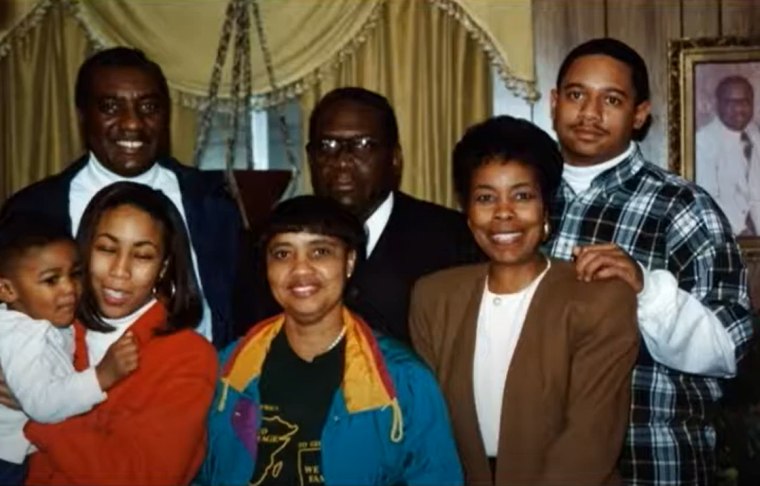
Like so many families in their position, the Rutledges say all they want is to know the truth.
Felicia Rutledge: “It has never been a day that I don’t think about him. Somebody knows something. Just say something.”
David Rutledge: “We don’t care, now, about whether anybody is brought to justice. We just want to understand and have some kind of closure.”
In 1998, David Rutledge saw his son’s face for the last time.
He says the last 26 years have taught him a lesson.
David Rutledge: “One of the things that I‘d like to have us be careful of as parents, is every chance you get, put your arms around your kid and hug ‘em and tell ‘em that you love them.”
Detective Matthew Filter says he is doing everything he can to get to the truth of what happened to Marcus.
Josh Mankiewicz: “You think this is gonna be solved someday?”
Detective Matthew Filter: “I’d like to hope. That would certainly be my goal with this would be to solve it. But at minimum, I would certainly like to get the family some answers, even if I can’t bring anybody to justice, even just to give them some answers about what happened. I mean, I think a family deserves at least that at a minimum.”
Josh Mankiewicz: “Getting those answers may require a lucky break for you.”
Detective Matthew Filter: “With this case, yeah. A lucky break is what often happens.”
And now, a sad update to Marcus's story.
After more than two decades of uncertainty, his family now has some answers.
First, we have to go back 14 years.
On December 8, 2010, a hunter came across a skull in a wooded area near Pecan Valley Road in Nashville. That's less than 20 minutes from where Marcus's car was found abandoned.
Police submitted DNA from the John Doe's skull to CODIS, but got no hits.
So the unidentified person became known as the "Pecan Valley John Doe."
Then, two years ago, the Metro Nashville Police Department reached out to Othram Labs in Texas for additional testing.
And the results? It's a match to Marcus Rutledge.
On January 31, 2025, the Metropolitan Nashville Police Department announced the news. They confirmed foul play is suspected in Marcus's disappearance and the investigation is ongoing.
Now, this isn't the ending Marcus's family hoped for. His dad David Rutledge told Dateline in a statement, quote, "Our family would like to express our deepest appreciation to those who have been so helpful to us in trying to find Marcus. Your efforts have brought us another step closer to closure. Marcus, we will forever cherish the memories."
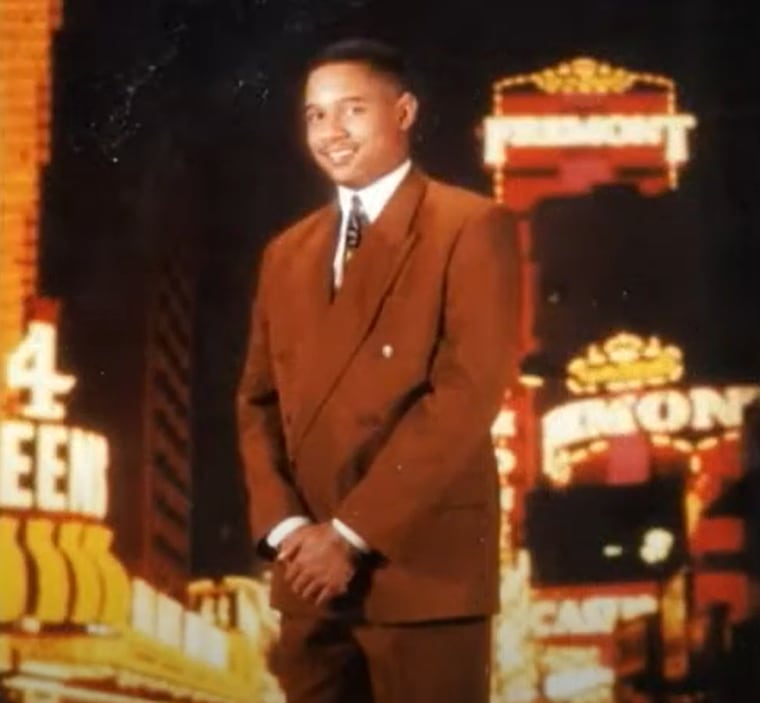
Anyone with information about Marcus’s disappearance is asked to call the Metro Nashville Police Department Cold Case Unit at 615-862-7329.
To learn more about other people we’ve covered in our “Missing In America” series go to DatelineMissingInAmerica.com. There you’ll be able to submit cases you think we should cover in the future.
Editor’s note: This transcript has been updated with information regarding Marcus’s remains being found.
